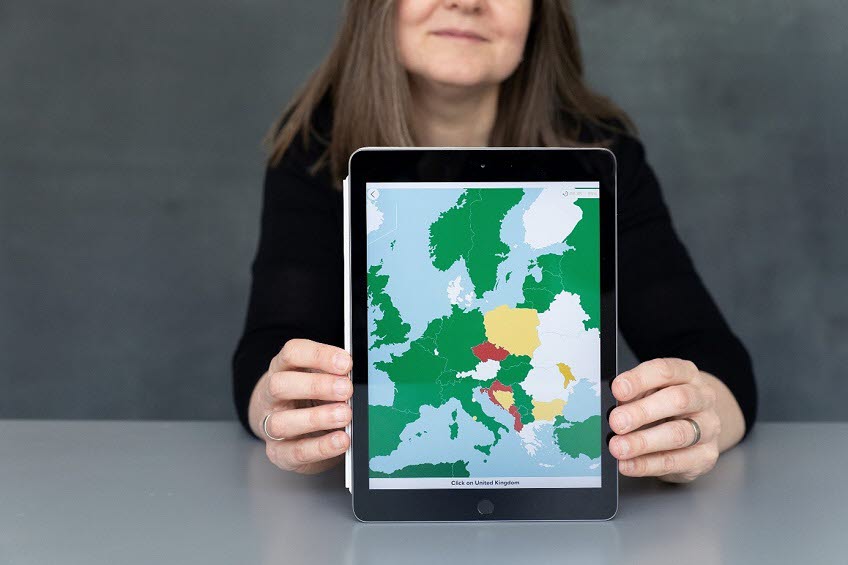
Seterra – the geography game that spread worldwide
Marianne Wartoft is the consultant and database programmer who wanted to undertake an enjoyable programming project on her own. With a profound interest in languages and a curiosity about all the countries in the world, she created the geography quiz game Seterra as early as 1997. She translated the game into numerous languages, and its development has progressed in tandem with the evolution of the internet.
Initially, she sold the game on floppy disks to customers in Sweden with an invoice sent by mail, which was quite a laborious process. After a few years, she released the game freely on the internet for downloading, as she no longer had time for the demanding administration. A few more years later, in 2011, she created an online version of the game, freely accessible on the internet. Over time, the number of users grew. Students from all over the world tested their geography knowledge with Seterra in various languages, both in school with teachers and at home with parents providing support with homework. Ten years after the launch of the web version, Seterra had an incredible 3.5 million users per month.
Initially, there was no clear business idea because the primary motivation was to create something enjoyable with programming. However, as users increased from all over the world, Marianne realized that Seterra filled a gap. When the web version of Seterra was launched, advertising revenue started to trickle in, and after a few years, she could work full-time on the project: programming new features, fixing bugs, creating new maps, translating, setting up servers, and spreading information about the game on social media.
Working alone full-time on the game meant that both the tasks and the challenges were many, especially regarding copyright issues for vector-based maps, for example. In hindsight, Marianne reflects that she would have worked differently. She constantly wanted to satisfy users, expanding features and creating apps. Looking back, she thinks it would have been better to trim certain parts to create more focus in her work. Trying to please everyone meant compromising a lot in the development work.
Backlinks became the game's most significant intangible asset.
Organic search engine optimization and the many backlinks are now the game's most valuable intangible asset. Most traffic comes from the USA, followed by countries such as Sweden, Spain, the United Kingdom, Germany, Italy, Switzerland, and Romania. However, visitors also come from many countries in Africa, South America, and other continents.
The name Seterra stemmed from Marianne's consistent naming series for her various game projects, such as Selingua, which focused on language learning. Seterra as a name has worked well in different languages, cultures, with a clear connection to the geographical content. Early on, domain pirates understood this and registered her name to extort and try to sell the domain expensively to her. But Marianne stood her ground, persisted, and eventually managed to register Seterra.com at a reasonable cost. She registered the name Seterra as a trademark in Sweden in 2016, and a year later continued with registrations in the EU, USA, Canada, Norway, and Switzerland with the assistance of a law firm in Uppsala.
"The significant intangible value in the game lies in its recognition and the many backlinks from other websites," she summarises.
Today, Marianne has sold Seterra and is working on other programming projects.

